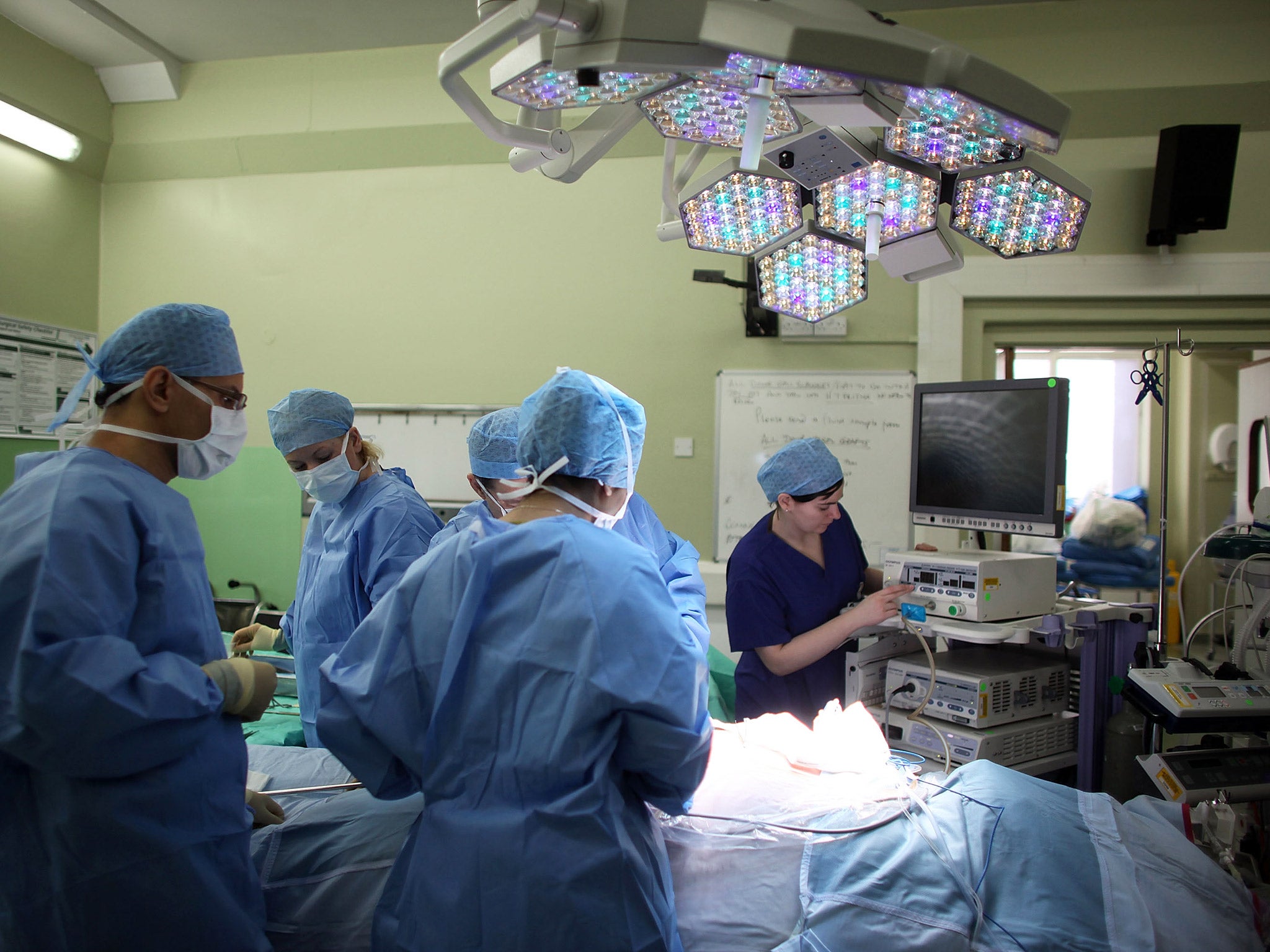NHS finance directors warn care deteriorating as budgets squeezed
Report finds that hospitals and other NHS services are now significantly over-budget

Your support helps us to tell the story
From reproductive rights to climate change to Big Tech, The Independent is on the ground when the story is developing. Whether it's investigating the financials of Elon Musk's pro-Trump PAC or producing our latest documentary, 'The A Word', which shines a light on the American women fighting for reproductive rights, we know how important it is to parse out the facts from the messaging.
At such a critical moment in US history, we need reporters on the ground. Your donation allows us to keep sending journalists to speak to both sides of the story.
The Independent is trusted by Americans across the entire political spectrum. And unlike many other quality news outlets, we choose not to lock Americans out of our reporting and analysis with paywalls. We believe quality journalism should be available to everyone, paid for by those who can afford it.
Your support makes all the difference.Spending caps imposed on the NHS could mean some hospitals are not able to afford enough staff to provide safe care, according to a survey of health service finance directors.
One in five finance directors said that new limits on the amount hospitals can spend on agency staff would affect their ability to roster safe numbers of doctors and nurses, according to the report from the respected King’s Fund think-tank
The organisation’s quarterly survey of 83 NHS trust directors also found that more than half think the quality of patient care in their area has deteriorated in the past year.
Hospitals and other NHS services are now significantly over-budget, with a £2.3bn deficit anticipated by the end of this financial year, the report says.
The finding, which is an increase on previous estimates by the National Audit Office but lower than the £2.9bn deficit predicted by some experts, reinforces fears in Whitehall that the Department of Health could breach its expenditure limit this year – despite a recent bailout and raid on capital savings.
“It is touch and go whether the Department of Health will be able to balance its budget at the end of the year,” said John Appleby, chief economist at the Kings Fund. “At the same time, performance is deteriorating with key targets being missed with increasing regularity and increasing concerns about the quality of patient care.”
The report shows that nine per cent of patients waited longer than four hours for A&E in the three months to December – the highest figure since 2003, while the total waiting list for planned admissions to hospital stands at 3.5m – the equivalent of the entire populations of Greater Manchester, Bristol and Southampton combined.
The next financial year, which will see £3.8bn in extra Government spending for the NHS largely used to plug hospital deficits, would be “make or break” for the NHS, Mr Appleby added.
Caps on agency staff spending form part of a wider efficiency drive which NHS leaders hope will save £22bn by 2020, although critics have described this as a “heroic assumption”.
In a sign of increasing central control, the Government and NHS regulators have now told hospitals they must eliminate their deficits next year or forfeit their share of £1.8bn in extra funding, and risk the suspension of the entire board.
Hospitals have been handed strict new financial targets, but around one in three are expected to reject them.
Last week, one hospital finance director provided anonymous evidence to MPs, warning that NHS accountants were under pressure to “cook the books” to meet the new targets, and said he feared for patient safety if hospitals took short-term action to cut staff numbers.
Staff salaries represent the largest area of NHS spending.
With a shortage of full time doctors and nurses, hospitals have increasingly turned to expensive temporary agency staff in recent years but the Government has cracked down on the practice with a new cap on the fees that can be paid for such staff.
Further NHS savings are being sought through attempts to improve procurement practice , and through better use and sell-offs of under-used parts of the NHS estate.
On 17 February it was confirmed that University College London Hospitals chief executive Sir Robert Naylor has been appointed as a national advisor to the NHS on estates. Labour peer Lord Carter, in his recent review of savings available to the NHS, said that £1bn could be found through more efficient use of the NHS estate, which amounts to land and buildings worth an estimated £40bn.
Health minister Alistair Burt said patient safety remained the NHS’s “top priority” that there should be “no choice between providing safe care” and “balancing books”.
“Despite being busy the NHS continues to perform well - last year the service performed 1.6 million more operations and treated 2,100 more people every day within the four hour A & E target compared to 2010,” he said.
Join our commenting forum
Join thought-provoking conversations, follow other Independent readers and see their replies
Comments